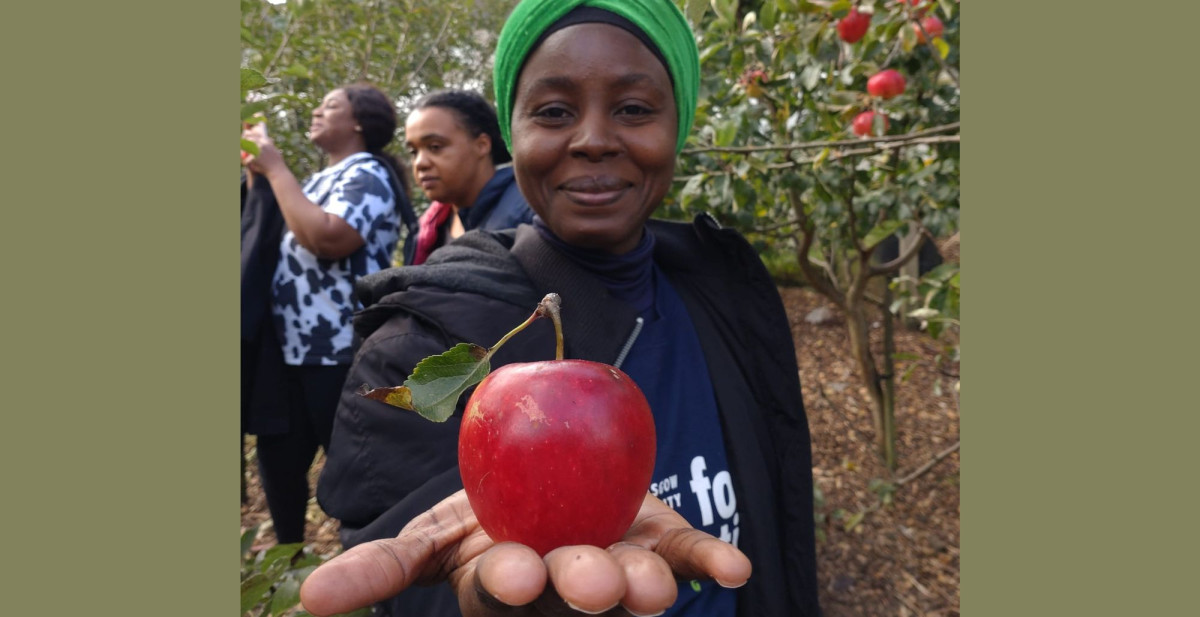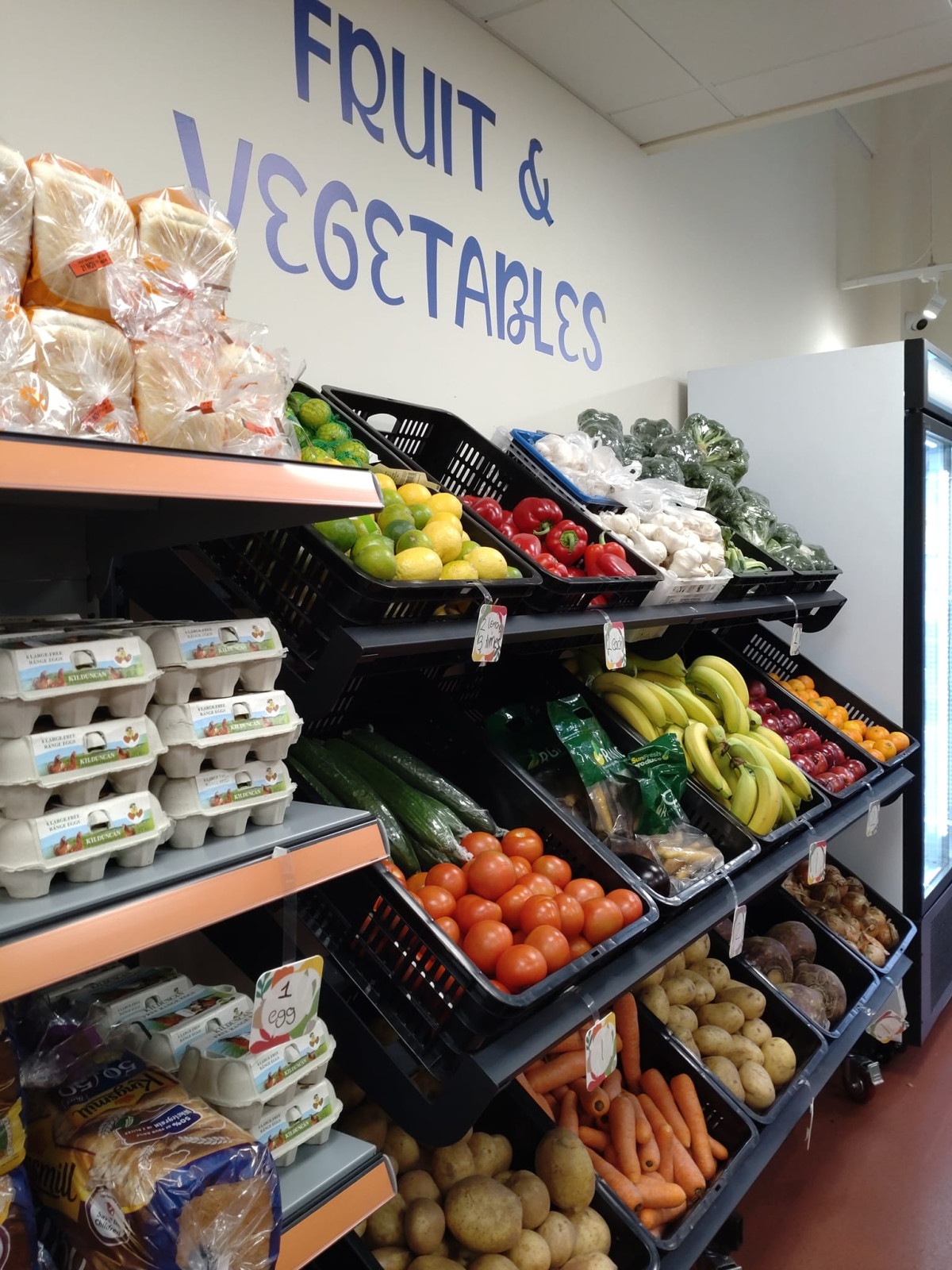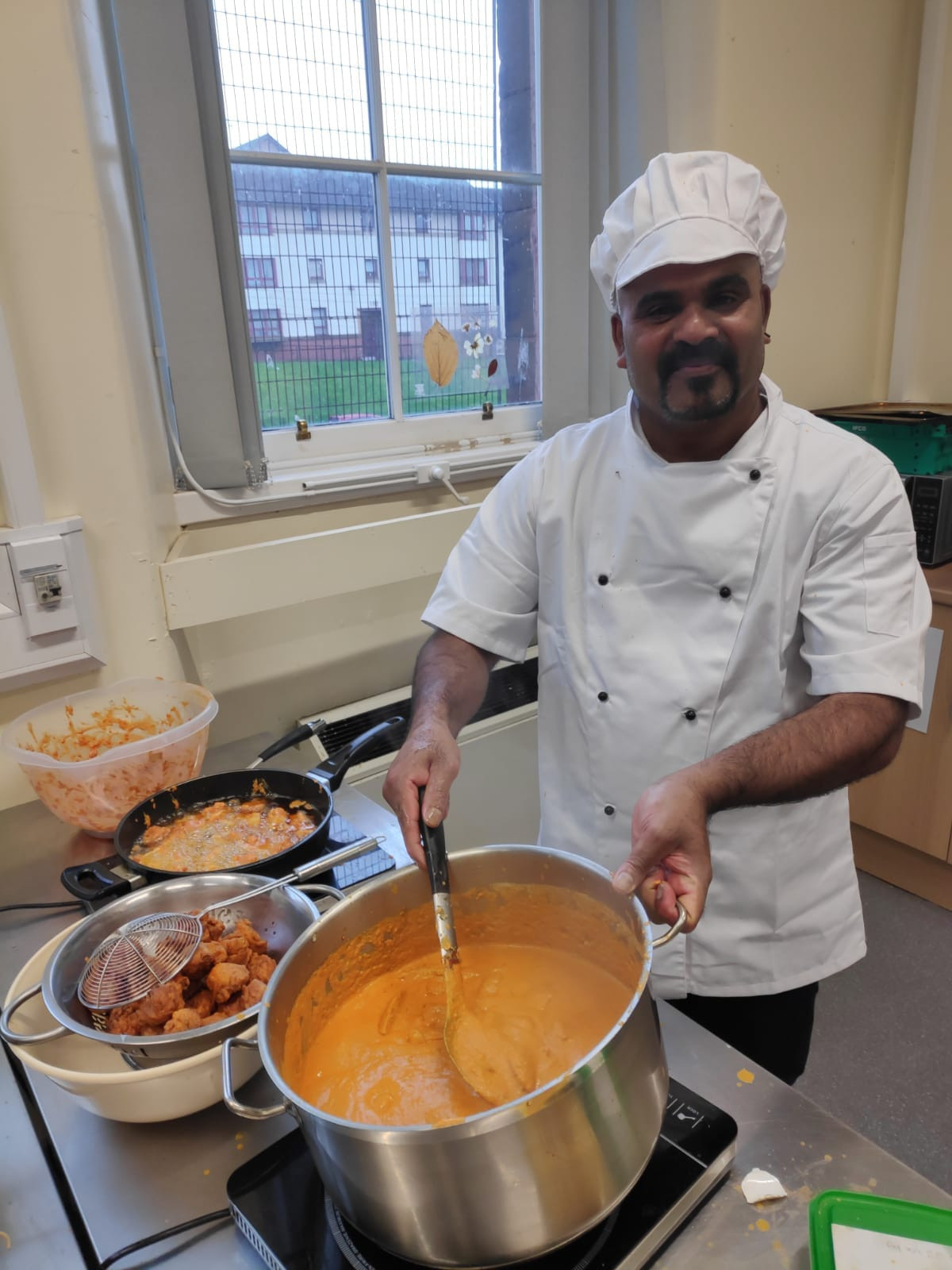
NGCFI Volunteer picking apples on a visit to St Paul's youth forum community garden
Find out more: https://www.ngcfi.org.uk/
NGCFI runs a range of community food activities across North East Glasgow, with food hubs in Milton, Springburn, and Royston. Each hub provides a range of activities that meet the needs of the communities we work in, running community pantries or fruit and veg stalls, community meals and cafes, gardening sessions, and cooking classes.
We aim to work in a community-led way, seeking input from the people who participate in our activities on ways we can improve them. Community steering groups meet regularly to discuss the progress of each food hub’s activities and share questions, ideas, and feedback. Our board of trustees recruits local community members, many of whom first interact with NGCFI as participants in our activities.
Our food provision is offered at low or no cost, with highly subsidised groceries available from our Pantry and fruit and veg barras, and community meals offered on a “pay-what-you-want” basis. We ensure that the food we provide is of high quality, nutritious, and reflects the tastes of the communities we serve.

Fruit and vegetable in Royston Pantry
Able to take part in community life
As far as possible, we seek to design activities that blur the line between service users and service providers, recognising that those who participate in activities have plenty to offer, and those who volunteer and work to provide activities have needs of their own.

Volunteer cooking meals for the community
We face significant challenges in balancing our aim of making our food provision as accessible for as many people as possible, and having to meet the serious financial costs of this provision, including food, space, and staff costs. Relying on surplus food donations saves costs but limits the scope of what we can offer, and does nothing to challenge the systems that create food insecurity and waste in the first place.
“First reflect on what you personally value about food, and the ways in which different models of food provision (e.g. supermarkets, pantries, food banks, community meals) reflect or conflict with these values. Consider how you could use any of these models (or others!) to better support you in providing what you really think is valuable about food! And join the Dignity Peer Network - peer support is always an invaluable thing to have access to.” – Isaac Tendler, Royston Food Hub Manager.